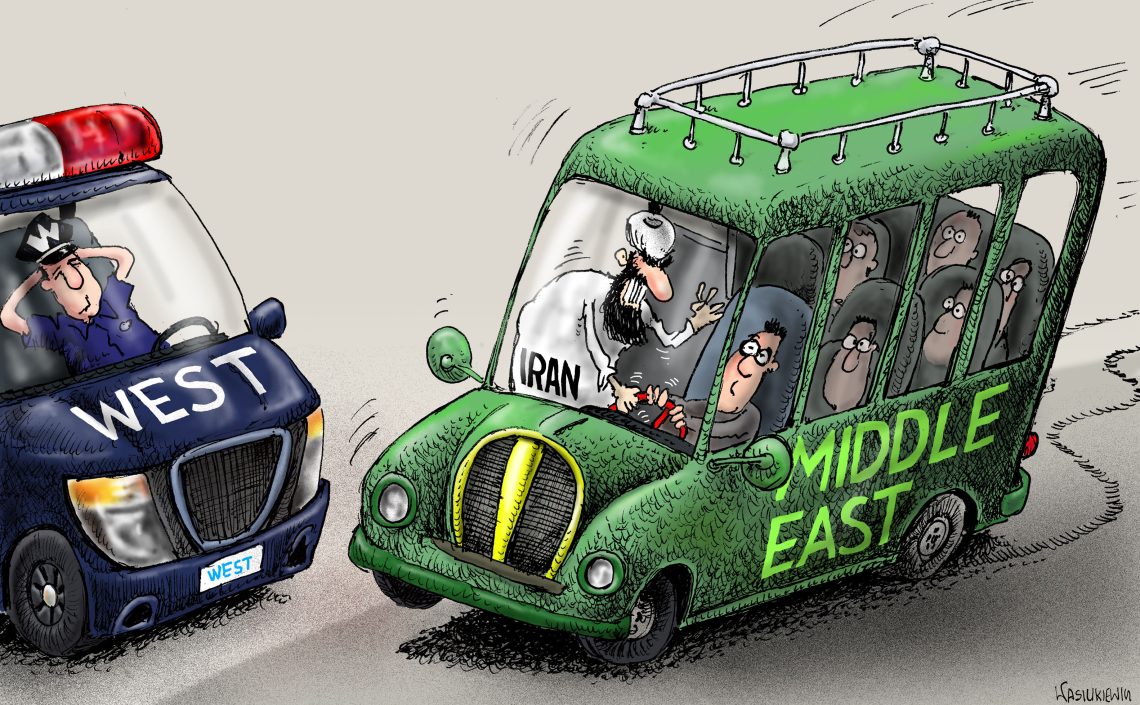Salman Rushdie and Tehran’s ambitions
The recent attempt to murder author Salman Rushdie should prompt Western countries to reassess their tolerant attitude toward Tehran’s subversive activities.

In 1982 Salman Rushdie, a British-American author of Indian origin, published a novel called “The Satanic Verses.” The book was considered blasphemy by Iran’s then-Supreme Leader Ayatollah Khomeini, who in 1989 issued a fatwa ordering the faithful to kill Rushdie. The fatwa was confirmed by Khomeini’s successor, Ayatollah Ali Khameinei.
Encyclopedia Britannica defines a fatwa as follows: “in Islam, a formal ruling or interpretation on a point of Islamic law given by a qualified legal scholar. Fatwas are usually issued in response to questions from individuals or Islamic courts. Though considered authoritative, fatwas are generally not treated as binding judgment.”
Whether or not one believes the book is in good taste, encouraging people to kill its author amounts to calling for terrorist acts in Western countries. And indeed, recently Mr. Rushdie was heavily injured by an attacker in New York. A 24-year-old man, Hadi Matar, stabbed the novelist to carry out the fatwa. The attack was strongly hailed in Iran, especially in the media, which are entirely controlled by the government.
Brussels planned to punish companies that respect the UN sanctions reimposed by Washington.
In both Europe and America, politicians and the media appeared shocked. However, the incident was not surprising. The regime in Tehran is the largest sponsor of terrorism worldwide. Hezbollah, a terrorist organization plaguing Lebanon, is openly supported by Iran. Iranian leaders are behind the civil war in Yemen. Their agenda is to secure access to the Red Sea and ultimately the Suez Canal, and to have a base to destabilize Saudi Arabia from the south.
Terrorist attacks in Iraq and armed interventions in Syria are also backed, even initiated and ordered by the Iranian regime. Tehran openly calls for the total annihilation of Israel, and it does not shy away from supporting terrorism in Europe and the U.S., as the attack in New York has shown.
Tolerating terrorism
Nevertheless, after several years of negotiations, in 2015 the U.S. and the other permanent members of the UN Security Council (China, France, Russia and the United Kingdom) as well as Germany and the European Union, concluded the Joint Comprehensive Plan of Action (JCPOA) with Tehran. Tehran agreed to dismantle most of its nuclear program and open its facilities to more extensive international inspections in exchange for billions of dollars’ worth of sanctions relief. However, the agreement only delayed Iran’s construction of nuclear warheads for 13 to 15 years.
The deal does not mention or try to prevent Iran’s subversive activities in the region or its sponsoring of terrorist activities. Neither does it address Tehran’s declared intention to annihilate Israel. The countries most affected were not included in the negotiations. These issues caused the Trump administration to cancel the JCPOA and reintroduce sanctions. Meanwhile, the EU did everything it could to save the agreement and normalize relations with Iran, completely neglecting the terrorist threat. Brussels even planned to punish companies that respect the UN sanctions reimposed by Washington.
Thousands of casualties in the Middle East were not enough to convince Western politicians and media of the need to fight Iran’s dangerous subversive activities.
Then the Biden administration, along with European countries, started to renegotiate the JCPOA. Typically, the Iranian regime pushed for even laxer conditions on nuclear development. Terrorism remains unaddressed. Shockingly, Western countries have continued to negotiate on these terms.
Iran already knows that Europe, and probably Russia and China as well, will offer Washington their support in the forthcoming negotiations. They seem to be resuming their nuclear development ahead of the talks. Perversely, neighboring countries that bear the brunt of the Iranian threat, like Israel, Saudi Arabia and Turkey, are left out of the process.
Thousands of casualties in the Middle East were not enough to convince Western politicians and media of the need to fight Iran’s dangerous subversive activities. But perhaps the New York attack will finally prompt the West to ensure that Tehran end its terrorism and destabilization campaign in the Middle East and the Western world before concluding a new deal.
